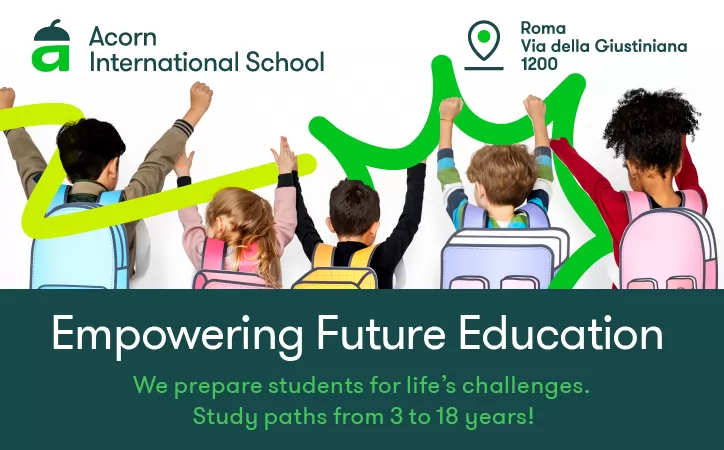Both admired and criticized for the last five years, Rome Mayor, Virginia Raggi, faces elections in October. She discusses the future of the city in an interview with Wanted in Rome.
by Marco VenturiniWhat condition did you find the Municipality of Rome in when you became Mayor and in what condition, after 5 years, do you leave the Campidoglio?
When I arrived at the Campidoglio I found a stationary administrative machine, without wheels or a steering wheel. After putting the accounts in order and beginning to repay the debts that we had left over from the past, I restarted it under the poster of legality. The other candidates don't even know where to put their hands, but I can make it run.We have worked hard to have budgets approved on time and this great commitment has also been confirmed by a major rating agency such as Standard and Poor's, which has improved the forecasts on the accounts of the capital by passing the outlook from negative to stable.
Construction sites and investments are back in our city: they are long-term projects that will change the face of Rome, making it even more modern, attractive and sustainable.
Many multinationals, from Netflix to all the major electric sharing companies have decided to open offices or branches in the city, bringing jobs and growth. Major film productions are back and as many as 16 different luxury hotels are opening in the city, such as the Bvlgari Hotel in Piazza Augusto Imperatore.
What is the most difficult aspect of governing a complicated city like Rome?
Rome is a vast and complex city in many ways. Being mayor is the most beautiful job in the world, but more effective tools are needed. For this reason, a law that gives Rome more powers is necessary to improve the efficiency of our city even more. And this is the reason why, since the beginning of my mandate, I have tried to have this request included among the priorities of the political agenda of our country.The work in Parliament is moving forward: a victory for all of us. Above all, because the current bureaucratic framework would not allow us to win the challenges of the future, which are many and decisive: the NRP, the Jubilee of 2025, the candidacy of Rome Expo 2030. We must be ready and prepared, simplifying procedures and clearly defining responsibilities and functions.
If you were re-elected, how would your second term be different from your first and what would be the priorities of a new administration?
My goal is to continue the work we have started and to continue on the path we have traced in recent years. We want to confirm an important tool such as Microcredit to boost the investments of many small entrepreneurs in our city and remove them from the danger of usury.We want to take care of those in need and give them a home to overcome the housing emergency using funds from the NRP. We have thought of new "Km0 Services" in the local markets to help families and the elderly that confirms the inclusive vocation of our city.
Rome has an incredible heritage of trees and green areas. We want to enhance it even more in the immediate future and we also have an ambitious long-term dream of urban regeneration in the suburbs: that of creating a "Park City" where families, young people and all those who want to play sports in the various neighborhoods can find state-of-the-art facilities and services. We have already laid the foundations of this vision for the future and we want to reap the benefits in the coming years.
As well as in public transport. After having saved ATAC from bankruptcy and put 900 new buses on the territory, now is the time to revolutionize them with a computerized transformation in real time: an application already in experimentation, which will be usable as early as June 2022, able to manage the movement in the city and allow Romans and tourists to choose which means is better to take at any given time.There has been no shortage of criticism over the last five years. What do you say to the detractors?
Facts speak for themselves. I leave the chatter to others. I only have Rome at heart.What, in your opinion, is a success for your administration and what instead is a failure?
I am proud of the work done in the suburbs. They call me the mayor of the suburbs because I'm redeveloping them after decades of neglect. In San Basilio, for example, we have intervened to try to change the face and image of the neighborhood, too often identified with episodes of crime, to the detriment of many associations active in the area and the many honest citizens who live there: we have taken away squares from drug dealing by bringing cultural events to the suburbs; cleared a property that a clan used for drug dealing to turn it into a gym for young people in the area; upgraded the local market; upgraded the historic whale fountain; brought the new buses; started the renovation of public housing.Bringing legality back to Rome, knocking down the illegal villas of the Casamonica and driving the Spada family out of Ostia, is certainly a success for all citizens. It is clear that in some areas the results have taken longer to arrive, as I said, we found a city at a standstill and full of debt. Now we have to reap the fruits of this intense work.
How can Rome's tourism offer be improved in the coming years?
Carrying forward the strategic lines of the Futurama Tourism Plan: the launch of the Destination Management Organization (DMO) to provide Rome, like other European capitals, with an integrated governance structure of the strategies and processes linked to tourism, the planning of communication campaigns and marketing actions aimed at defined targets, the sharing of programs and events with the sector chain for the planning of the offer and the seasonal adjustment of flows, the profiling of an ad hoc reception for the different types of travelers.Important European capitals have decided to limit the phenomenon of "AirBnb". How would a possible new administration intend to deal with this problem?
Limiting entrepreneurship is not the solution; managing it carefully in order to fight abusive and undeclared activities is our choice. In 2020 we signed a pilot agreement with Airbnb for the payment of the tourist tax: a collaboration with the online booking platform in the name of legality, safety and the fight against illegal activity, which in the pre-covid era would have brought significant revenue to reinvest in the city.How do you intend to solve the long-standing problems of AMA and ATAC?
For ATAC we have already started a clear path with which we have saved the company, protected twelve thousand jobs and relaunched the entire public transport service. With the plan of arrangement with continuity we have kept ATAC public and saved it from bankruptcy, in the face of a monstrous debt accumulated by previous administrations of 1.3 billion euros. Thanks to a solid business plan and the path followed in recent years, ATAC, for the first time in its history, has also recorded operating profits, both in 2018 and 2019.In recent years we have also invested in the renewal of the fleet, putting more than 900 new buses on the road and resumed hiring workers and drivers to serve the city.
AMA's problems, fortunately, have already been solved by our administration. We don't say so, but the facts speak for themselves. After decades of waste and mismanagement, we have put in place a laborious but fruitful action to restore the accounts of the subsidiary.A work that led us to close the 2017, 2018 and 2019 corporate budgets, to approve the Recovery Plan and the new multi-year Business Plan. Thanks to a mega financing of over 300 million euros, we have closed the gigantic hole left by those who preceded us (over 250 million euros) and we have restarted with new hires, purchase of new vehicles and an improvement in collection services. In the plan, among other things, there is also the construction of two new plants that will help Rome in achieving autonomy in terms of waste disposal.
Rome is home to two soccer teams with two demanding fan bases. There has often been talk of giving these clubs the opportunity to have their own stadiums. What would be the position of a new administration of yours?
As you know, I am working with Roma. The Friedkin's have opened up to the new stadium. In this way, we have definitely turned the page. At the moment we don't have a project, but for me the best area to build a new facility could be in Ostiense, where there are already many services. It's a redeveloped area and, above all, it's close to the heart of Romanisti. We are also working with SS Lazio. It would be great if both clubs in the capital had their own stadium. I'm working hard to achieve this objective.Woman and Mayor in a world of men. If and how difficult was it to get ahead?
I'm the first woman to be elected mayor of Rome. An honor for me and a source of pride. It's true that sometimes there have been prejudices, but as many women do every day, I respond with work and commitment. I have always focused on the projects to be carried out, and that is what I will continue to do.How has your life changed since you became Mayor, what do you miss most about your previous life?
Putting yourself at the service of the citizenry requires a constant commitment, but it is also the most beautiful thing in the world. It means helping people, carrying out a project, an idea, a vision. Certainly before becoming mayor I had more time to spend with my family. It's the only thing I miss.Ph: Kraft74 / Shutterstock.com

















